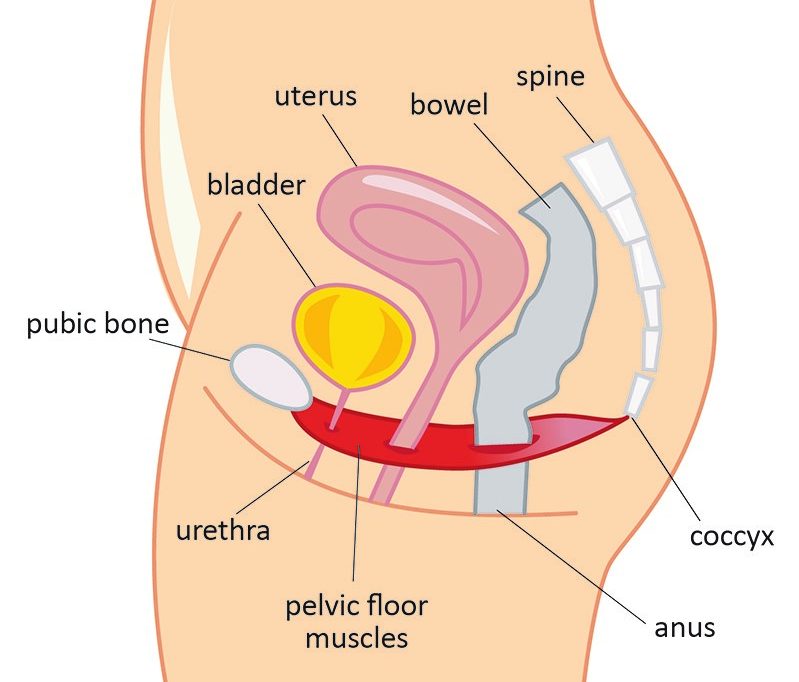Pelvic health is an essential aspect of overall well-being, yet many individuals remain unaware of the potential challenges that can arise in this area. Pelvic organ prolapse occurs when the connective tissues that support the pelvic organs—such as the uterus, bladder, and rectum—become weakened or damaged, leading to a descent or bulging of these organs into the vaginal canal. This condition can cause heaviness, discomfort, incontinence and interfere with daily activities. While pelvic organ prolapse is more common among older women, it can affect adults of any age, especially those who have experienced pregnancy, childbirth or hormonal changes.
Causes and Risk Factors
The primary cause of pelvic organ prolapse is weakened pelvic floor muscles and connective tissues. Pregnancy and childbirth, especially multiple vaginal deliveries, increases the risk of prolapse due to the strain placed on these supportive structures. Other risk factors include hormonal changes, increased BMI, chronic sneezing and/or coughing, heavy lifting, and genetic predisposition. Leading a sedentary lifestyle and certain medical conditions can also contribute to the weakening of pelvic floor muscles.
Prevention Strategies
While some risk factors for pelvic organ prolapse are unavoidable, there are proactive steps that individuals can take to reduce their risk and maintain pelvic health.
- Pelvic Floor Exercises: Engaging in regular pelvic floor exercises, also known as Kegel exercises, can strengthen the muscles that support the pelvic organs. Pelvic floor exercises done under close supervision of a pelvic health physio have significantly better outcomes than home-based pelvic floor exercises. That is why we have clinical pilates classes at Range Physio run by qualified pelvic floor physiotherapists, providing expert guidance and monitoring to ensure optimal results.
- Maintain a Healthy Weight: Excess weight can place additional strain on the pelvic floor muscles. Maintaining a healthy weight through balanced nutrition and regular exercise can help alleviate this pressure.
- Proper Lifting Techniques: When lifting heavy objects, it’s essential to use proper techniques to avoid unnecessary strain on the pelvic floor. Engaging the core muscles and bending the knees can distribute the weight more effectively.
- Chronic Cough Management: If you have a chronic cough, seek medical advice to manage and treat it effectively. A persistent cough can contribute to the weakening of pelvic floor muscles.
- Pelvic Health Physiotherapy: Pelvic health physiotherapy is a specialized branch of physiotherapy that focuses on assessing and treating conditions related to the pelvic region. Skilled pelvic health physiotherapists work with patients to assess their risk factors, strengthen the pelvic floor muscles, improve muscle coordination, educate them about healthy habits to maintain pelvic health and provide guidance to exercise safely.
Benefits of Pelvic Health Physiotherapy
- Risk Assessment and Minimization: Range Physio pelvic health physiotherapists conduct a thorough, evidence-based assessment to evaluate your unique risk of developing prolapse. From this assessment, you will receive tailored guidance on effective strategies to minimize this risk.
- Comprehensive Treatment Approach: If you have pelvic organ prolapse, our pelvic health physiotherapists can inform you of your risk of the issue progressing, and discuss in detail the conservative and surgical treatment options available to you. This comprehensive approach empowers you to make informed decisions about your pelvic health.
- Pelvic Floor Exercises: Range physiotherapists guide patients on how to perform effective pelvic floor exercises and ensure proper technique to achieve optimal results. We use real time ultrasound, physical examination and verbal feedback on exercise technique.
- Education and Lifestyle Guidance: Patients receive valuable and easy to understand information about pelvic floor anatomy and physiology, posture, breathing techniques, and daily habits that can positively impact pelvic health.
- Manual Therapy: Pelvic health physiotherapists may use manual techniques to release muscle tension, improve blood flow, and restore proper alignment in the pelvic region.
- Pessary Fitting and Management: A pessary is a specialized device that provides support to the pelvic organs. Using a pessary is akin to using an ankle brace to support a weakened ankle. At Range Physio, we have the knowledge, experience, and equipment to fit and manage a pessary. This specialized device can be a valuable tool to significantly reduce prolapse symptoms. During your assessment, your pelvic health physio will inform you if a pessary will be a good option for you. If recommended, our team will guide you through the process of selecting, fitting, and maintaining the pessary as part of your personalized treatment plan. This non-surgical approach can provide additional support to the pelvic organs and enhance your overall comfort and quality of life.
- Personalized Treatment Plans: Pelvic health physiotherapists at Range Physio will develop tailored treatment plans based on individual circumstances, needs and risk factors, addressing specific concerns related to pelvic organ prolapse.
- Support Throughout the Journey: From assessment to recovery, pelvic health physiotherapists offer continuous guidance, support, and monitoring, helping patients regain confidence and control over their pelvic health. We encourage patients to ask questions and get in touch via email to ensure they feel supported during their recovery.
Pelvic organ prolapse is a common condition that can significantly impact one’s quality of life. However, by understanding its causes, risk factors, and prevention strategies, individuals can take proactive steps to reduce their risk. Pelvic health physiotherapy is a crucial tool in preventing, managing and treating pelvic organ prolapse, offering personalized care and empowering patients to regain control over their pelvic health. If you or a loved one is experiencing symptoms or seeking preventive measures, consulting a pelvic health Range physiotherapist can be a transformative step toward a healthier and more vibrant life.


